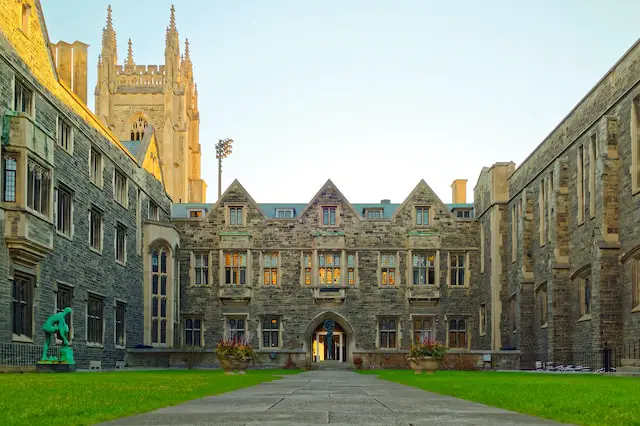DePaul University is a private, Catholic university located in Chicago, Illinois. It was founded in 1898 by the Vincentians, a Catholic religious order. The university has a diverse student body and offers a variety of undergraduate, graduate, and professional degree programs. In this article, we will examine the pros and cons of DePaul University in detail.

Pros of DePaul University
- Academic Reputation: DePaul University has a strong academic reputation, particularly in the fields of business, law, and technology. The university is consistently ranked among the top universities in the United States, and its graduate programs in business and law are among the best in the country.
- Location: DePaul University is located in the heart of Chicago, one of the most vibrant and culturally rich cities in the world. Students have access to world-class museums, theaters, restaurants, and shopping, as well as a diverse and thriving business community.
- Diversity: DePaul University is committed to diversity, equity, and inclusion, and has a diverse student body that includes students from all over the world. The university is also home to a number of centers and programs that promote diversity and social justice.
- Internship Opportunities: DePaul University has a strong internship program, with many students gaining valuable work experience in a variety of industries. The university has partnerships with a number of businesses and organizations in Chicago, providing students with a wealth of opportunities to gain real-world experience.
- Small Class Sizes: DePaul University prides itself on its small class sizes, which allow for more personalized attention and interaction between students and professors. This can lead to a more engaging and rewarding academic experience for students.
- Flexible Learning: DePaul University offers a range of flexible learning options, including online and hybrid courses, evening and weekend classes, and accelerated programs. This allows students to customize their academic experience to fit their individual needs and schedules.
Cons of DePaul University
- Cost: DePaul University is a private university and therefore can be expensive, particularly for out-of-state and international students. However, the university does offer financial aid and scholarships to help offset the cost of tuition.
- Campus Size: While DePaul University has multiple campuses throughout Chicago, some students may find the campuses to be small and limited in terms of facilities and resources.
- Limited Sports Programs: DePaul University does not have a strong athletic program, with limited sports teams and facilities. This may be a drawback for students who are looking for a robust sports community.
- Heavy Emphasis on Business and Law: While DePaul University offers a range of academic programs, there is a heavy emphasis on business and law, which may not be appealing to students who are interested in other fields.
- Heavy Workload: DePaul University is known for its rigorous academic programs, which can be demanding and require a significant amount of time and effort from students. This may not be suitable for students who prefer a more relaxed academic environment.
- Lack of Campus Spirit: DePaul University has a diverse student body, but some students may feel a lack of campus spirit and community, particularly compared to larger universities with more active student organizations and events.
Conclusion
DePaul University is a well-respected university with a strong academic reputation and a commitment to diversity and social justice. Its location in Chicago provides students with access to a vibrant and diverse city with numerous internship and career opportunities. However, the university can be expensive, and some students may find the campuses to be small and limited in terms of resources. Additionally, the heavy emphasis on business and law and the rigorous academic programs may not be suitable for all students. Ultimately, the decision to attend DePaul University will depend on individual preferences and priorities.